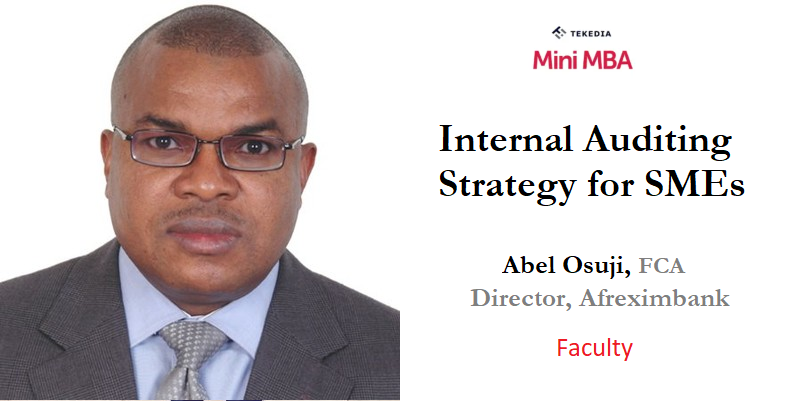In February 2020, the internet community was grieved by the news of the demise of the inventor of the cut, copy and paste commands in computer, Larry Tesler. John Warnock and Charles Geschke (Adobe Reader inventors) are still with us. These computer scientists deserve our respect because of the impact of their works in file management for learning and development. It isn’t enough that a student attends classes to receive lectures, or visits libraries to read the books on shelves; students can copy texts or download resources online via the Internet and save in a word or pdf file for study at a later time. Because a student may have enthusiastically set out to receive a lecture on campus but find his/her mood swinging like a pendulum bob in class till the whole lecture is lost on him/her.
Online learning is not the future of education; it is the present, the gift of today’s education. It can be likened to a delivery service that brings you your order at one’s doorpost instead of one having to visit the physical office of the delivery service provider. It won’t matter how one unboxes the gift—the value of the gift remains the same. The “unboxing” of this gift, of education online or offline, is, unfortunately, what has underscored many arguments about online learning. It is debatable whether the discussion of the validity of an education should be polarized along these two delivery methods, online and offline learning, since learning is not an exclusive activity but is, rather, perfected by a multiple of events. For example, in an offline learning mode of education delivery—as formerly described in the beginning of this essay—where courses are delivered and graded offline towards the award of an academic degree, students are given assignments to take home and bring back at a future date for correction.
Quizzes are sometimes conducted as open-book tests, where students have liberty to use any resource at their disposal to answer the quizzes. Students do leverage the Internet to help them with such work, from browsing quiz topics online to downloading assignment materials for study at their own convenience. How, then, does this differ from quizzes and assignments delivered online? Interestingly, this modus operandi in delivering education is not new; in what was known as correspondence education as far back as in 1840, Isaac Pitman mailed postcards to students and instructed them to transcribe passages from the Bible into shorthand and return them, by post, for correction. The difference between this distance education in the 19th Century and what we now refer to as online learning is simply the Internet.
But because of our peculiar nature as social animals, our proclivities towards forming connections and memories through interactions between ourselves and new environments make us often opt for the traditional, offline physical system of learning where physical presence or structures are found. That is why a fresh secondary school leaver would most likely opt to start freshman year in computer science, for instance, in a tertiary institution far from home than enrol in an online degree programme even though the latter may be more valuable for self-development and in securing great opportunities in the future. Even executives in senior management levels in organizations are not exempt from this popular behaviour; without recourse to the higher cost of offline learning than online learning, they vacate their hot seats in their organizations and travel to a school to spend weeks taking, say, a management course.
Others follow suit sometimes because of the prestige that comes with the evidence (pictures or live videos/presentations with faculty on the school’s campus) of their association with the educational institution. Online education givers have recognized this peculiar behaviour of humans and have devised ways to still bring back this human element in the edu-tech setting. Virtual learning platforms that offer access to networking forums for interactions with fellow students and instructors online and offline have been designed by online education providers to give students the feel of the typical classroom setting. Students can form their own communities online or offline and meet up at a time convenient for them rather than within a strict academic calendar. And they can also visit the learning institutions, if they so desire, to collect their certificates or awards in person. Learning is, thus, an open access education experience centre personalized for remote convenience.
The future of education is not in the offer of an age-long mode of educational delivery (distance learning) but in the acceptance of the same, in the advent of a digital world where nations and the interactions of variables within and around them that give rise to their prosperity are continuously being unconstrained and unbounded by geography. The Fourth Industrial Revolution for the world is predicted to give rise to a job market increasingly segregated into “low-skill/low pay” and high-skill/high-pay” segments, the divide differentiated by the weight of capabilities accumulated by workers. Hence, traditional brick-and-mortar educational institutions — and even those that have evolved correspondingly with the changing education delivery methods — need to reinvent themselves from just being knowledge gatekeepers to becoming knowledge exporters on a large scale by building strategic linkages with a network of online education providers.
And that is the advantage that professional bodies have over academic institutions — that they are able scale to reach many regions of the world via partnerships with educational delivery organizations across the globe. With the penetration of the Internet deepening in emerging economies, knowledge will be further radicalized and explored unapologetically than preserved in the highest esteem. Consequently, any foreign university could consider partnering with Tekedia Institute to meet the development needs of the workers of the future in Africa who are constantly in a race against time towards achieving the highest productivity using the lowest possible cost. Workers of the future—knowledge workers—and the present, too, in our digital world [would] have their skills constantly and rapidly dislocated by technology, predicating that the appraisal of one’s productivity would most often times than not be satisfied by measuring value added against time. And this increasingly criticality of time as a finite success factor of productivity means online learning as a time-saving, value maximizing method of education delivery is, and will continually remain, a success factor for the growth and development of [today’s and] tomorrow’s knowledge worker.







